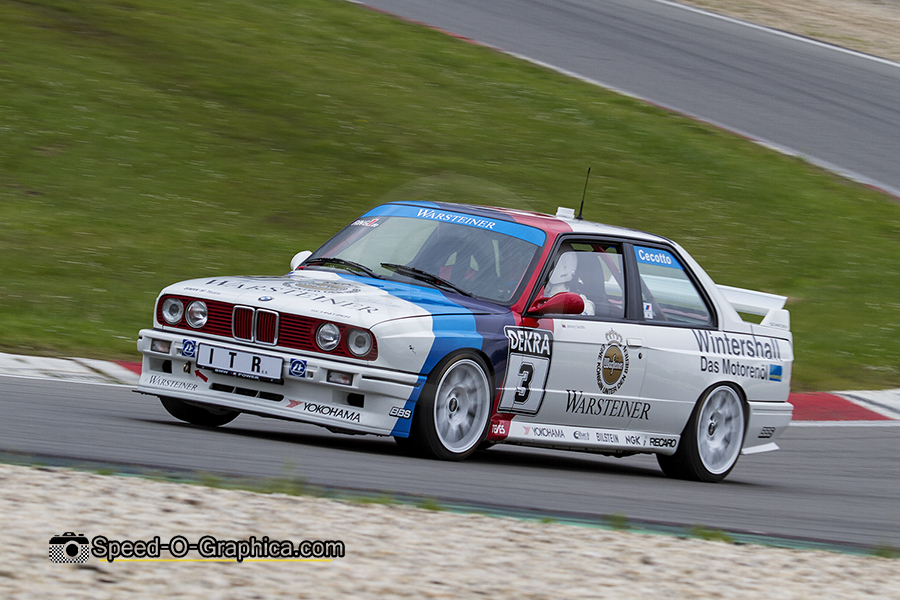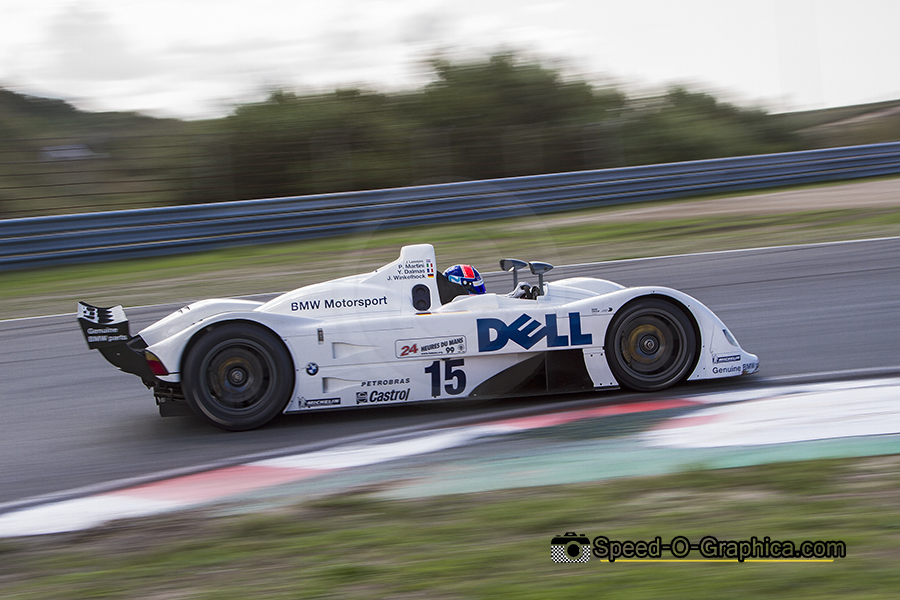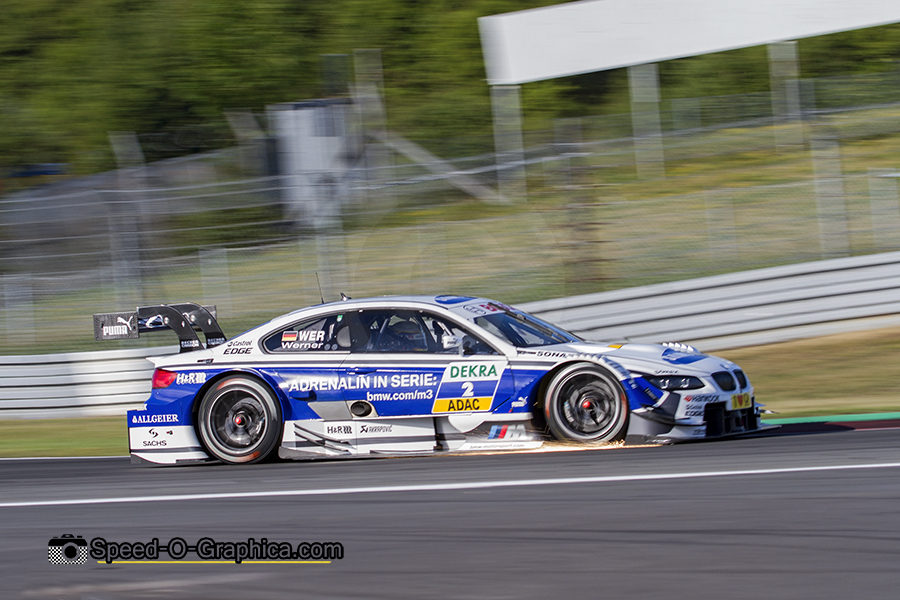An Abrupt End to an Era, Schnitzer Motorsport: Part 3

By Marcel Hundscheid / Speed-O-Graphica
We continue our story about Schnitzer Motorsport with the evolution of the legendary BMW M3.
When the Evolution version of the M3 launched in 1988, including a revised spoiler, the engine produced 220 hp and could push the car to a maximum speed of 243 km/h. By the time BMW Motorsport presented the final evolution of the first E30 M3, the capacity of the engine created by Paul Rosche was increased to 2.5 liters, generating 238 hp.
After winning the European title in 1983 and 1986 along with the World Championship in 1987, Roberto Ravaglia won the European Championship in 1988 driving a BMW M Motorsport Group A M3 for Schnitzer Motorsport.
The 1987 car used by Ravaglia in the World Championship had a stunning 300 hp instead of the 200 hp from the production version at 8200 rpm. The most powerful version with 2.5 litre engine capacity went up to a staggering 360 hp.
1989 would be a special year for the German squad as they were able to claim two major titles. Roberto Ravaglia gave BMW the DTM title in his debut year driving the M3 E30. Schnitzer Motorsport also celebrated their very first victory in the 24 hours of the Nürburgring. More victories on the notorious Nordschleife would follow in 1991, 2004, 2005 and 2010. Ravaglia’s hunger for titles wasn’t satisfied, and in 1990 he would claim his fifth consecutive title by winning the Italian Touringcar championship.
With the arrival of Class 1 cars in 1993, BMW left the DTM as they had plans to use a straight 6-cylinder instead of the V6 engine. Meanwhile, Schnitzer Motorsport crossed the English Channel and entered the British Touring Car Championship, which ‘Smoking Joe’ Joachim Winkelhock won driving a BMW 318i BTCC. This victory was followed by glory in the Asia-Pacific championship in 1994.
In 1998, as the DTM championship wound up, Schnitzer entered the German ADAC STW championship with Johnny Cecotto. The Venezuelan former professional Grand Prix motorcycle racer had switched in 1980 to car racing. He debuted in the Formula 2 championship and raced for both Minardi and March-BMW, followed by his debut in Formula 1 in 1983 for Theodore.
Cecotto was seriously injured during qualifying for the British Grand Prix at Brands Hatch and his Formula 1 career ended prematurely due to his injuries. He debuted for Schnitzer in 1985 in a Group A BMW 635 CSi at the 24 Hours of Spa, finishing 2nd. Cecotto won the 1998 STW Championship for Schnitzer in a BMW 320i.

In 1999, Schnitzer won the 24 Hours of Le Mans for BMW Motorsport with a BMW V12 LMR piloted by Joachim Winkelhock, Pier-Luigi Martini and Yannick Dalmas. Their V12 LM from 1998 was followed by a new V12 LMR in 1999 equipped with a BMW S70/3 6.0 litre V12 engine generating around 580 hp.
The car was developed in cooperation with Williams F1. BMW was in charge of the powertrain, while Williams focused on the aerodynamics. The S70 engine was already used in the McLaren F1 GTR Longtail and would be further improved.
After debuting the car at the 12 hours of Sebring in 1999, the 24 Hours of Le Mans would follow. Winkelhock, Martini and Dalmas crossed the finish line first and would give BMW their first and only win at Sarthe until today.
Schnitzer’s success story would continue with the GT title in the American Le Mans Series. German Jörg Müller won the championship in 2001 with a BMW M3 GTR. Although Schnitzer’s participation in the FIA World Touring Car Championship would see 25 race victories between 2005 and 2009, the team failed in winning the world title. With the reincarnation of the DTM championship in 2012, Schnitzer’s return would give the German squad another title thanks to Canadian Bruno Spengler.
The Schnitzer team rarely appeared at the start of a race by the time 2020 rolled around, and at the beginning of December 2020, reporting appeared in the press announcing BMW’s plan to end the collaboration after a period of more than 50 years. The official press release mentioned that due to the reorientation of the factory-based team structure that has become necessary, the partnership with BMW Team Schnitzer wouldn’t be continued.

